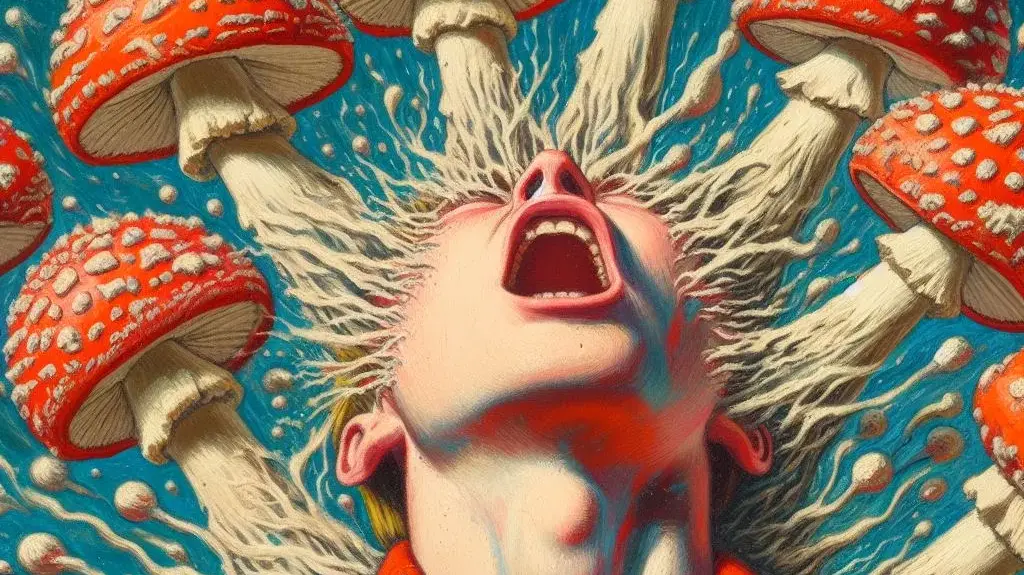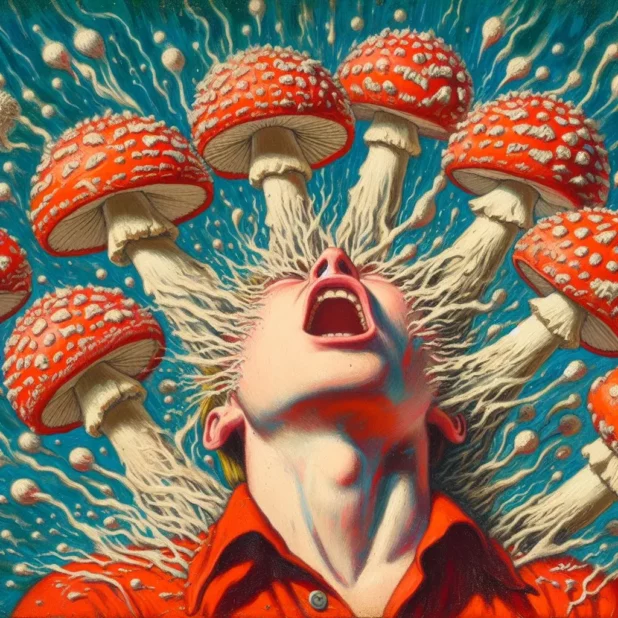Just give people psychedelic drugs.
It will make them more normal.
AP:
Money is pouring into the fledgling psychedelic medicine industry, with dozens of startup companies vying to be among the first to sell mind-expanding drugs for depression, addiction and other mental health conditions.
While psychedelics are still illegal under federal law, companies are jostling to try and patent key ingredients found in magic mushrooms, ayahuasca and other substances that have been used underground for decades or — in some cases — for millennia by indigenous cultures.
Wall Street’s sudden exuberance for hallucinogens has rankled longtime advocates and philanthropists, who dreamed of making low-cost psychedelics widely available for mental health and personal growth. Instead, many now see a very different future for drugs like psilocybin and LSD: as expensive, specialty medications controlled by a handful of biotech companies.
“It’s disappointing,” said Carey Turnbull, an investor and philanthropist who sits on the board of several psychedelic nonprofits. “All the air is getting sucked out of the room by these for-profit companies who say, ‘Wow, this stuff is awesome, if I could patent it I’d make a fortune.’”
Since 2010, Turnbull and his wife have donated millions to fund psychedelic research at New York University, Yale and other top academic centers.
…
Psychedelics never fit the business model of the traditional blockbuster drug: an exclusive, patent-protected medicine that patients take regularly for years.
None of the psychedelics currently being studied are new. Synthetic drugs like LSD and ecstasy have been off patent for decades. Naturally occurring substances like psilocybin, found in certain mushrooms, can’t be patented by themselves.
And then there’s the challenge of administering drugs that bring about intense, disorienting visions and experiences. All the drugs vying for FDA approval will have to be given under professional supervision, typically during several therapy sessions lasting about six to eight hours each.
All those hours and professional fees will drive up costs, which many analysts say could range from $5,000 to $10,000 for one course of treatment.
Psychedelic executives say the only way to defer those costs is to conduct large, rigorous clinical studies needed for FDA approval, which could compel insurers to pay for psychedelics. But funding those studies requires raising tens of millions from investors, who typically only back drugmakers with strong patents.
“The only way you’re going to bring about that broad and equitable access is with robust intellectual property,” said Kabir Nath, CEO of Compass Pathways, which is studying laboratory-made psilocybin for depression, anorexia and other disorders.
Compass is among the most aggressive companies in terms of trying to patent its technology, with dozens of applications filed with the U.S. Patent and Trademark Office.
One submission describes the “soft furniture” and “muted colors” that would decorate rooms where patients take psilocybin. Another patent lays claim to a specific, microscopic structure found in Compass’ synthetic psilocybin, which the company claims is uniquely suited for mass production.
The company’s efforts have drawn ridicule from some researchers, who note that as early as the 1970s, psychedelic therapists had codified the settings and techniques described in Compass patents.
“It just seems like a blatant power grab,” said Frederick Barrett, a neuroscientist who directs Johns Hopkins University’s psychedelic center.
Welp.
We’ve reached another new low.
Ever taken psychedelics and had an exceptional experience, like telepathy? …We’re inviting participants for a short-ish anonymous survey exploring the effects of psychedelically induced exceptional experiences on wellbeing … https://t.co/ao7Uva1qQp #psychedelics #psychedelic pic.twitter.com/EHKHQR8wNE
— David Luke (@drdluke) February 2, 2024

